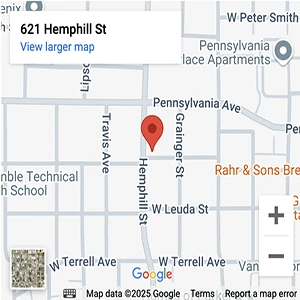What Self-Driving Trucks Won’t Have: Intuition
TEXAS. Slate recently reported on an accident between a self-driving car and a bus driver. While Google claims that it would update its software to prevent similar accidents in the future, Slate reported that the accident has less to do with software and more to do with the fact that self-driving cars have no intuition.
While people sometimes mis-judge what others will do on the road, humans have great skill when it comes to predicting what other rational drivers will do behind the wheel. Self-driving cars, however, behave using algorithms. One of the things that differentiates human drivers from artificial intelligence, is the fact that humans have something called “theory of mind.” Even small children have a good sense about what other people want and need. Theory of mind can influence our driving—say, when you see a driver with red eyes driving erratically, you won’t necessarily count on this driver to behave rationally, and therefore you might keep your distance. The car crash involving the bus may have more to do with the fact that the artificial intelligence couldn’t determine the bus driver’s intention.
However, if self-driving vehicles can somehow in the future be programmed to have a theory of mind, these vehicles could be very powerful indeed. Human intuition can be compromised for a variety of reasons—too much drinking, texting and driving, and according to the New York Times, even due to depression or anxiety.
Many commentators have noted that the greatest risk self-driving technology will pose is during its development phase—during the years when the technology shares the road with human drivers with human goals and human fallibility. If every car or truck on the road was self-driving and therefore predictable and steady, then self-driving cars might not necessarily need a theory of mind to operate safely.
These are concerns that car and truck companies need to consider before self-driving trucks hit the road. Unlike passenger vehicles, self-driving trucks will carry heavier loads and pose a much greater risk to life and safety. Should self-driving trucks ever share the road with human drivers? Or, maybe they will arrive in a future where roads are specifically designated for self-driving vehicles. Or, maybe they should only be permitted when the technology has been sufficiently tested?
All of this is years away. Right now, trucks pose a range of hazards to passenger vehicle drivers. These hazards include drivers who may be fatigued or distracted. Until self-driving trucks eliminate the potential for human error, drivers will continue to face and struggle with these risks. The Cooper Law Firm are truck accident lawyers in Texas who are closely watching the development of self-driving technology. Until then, use your intuition behind the wheel, and consider seeking justice if you or a loved one was hurt in a truck accident in Texas. The Cooper Law Firm may be able to help you seek damages to cover your medical bills, lost wages, and pain and suffering.
Cooper Law Firm
501 N Third St,
Longview, TX 75601
Telephone: (903) 297-0037









